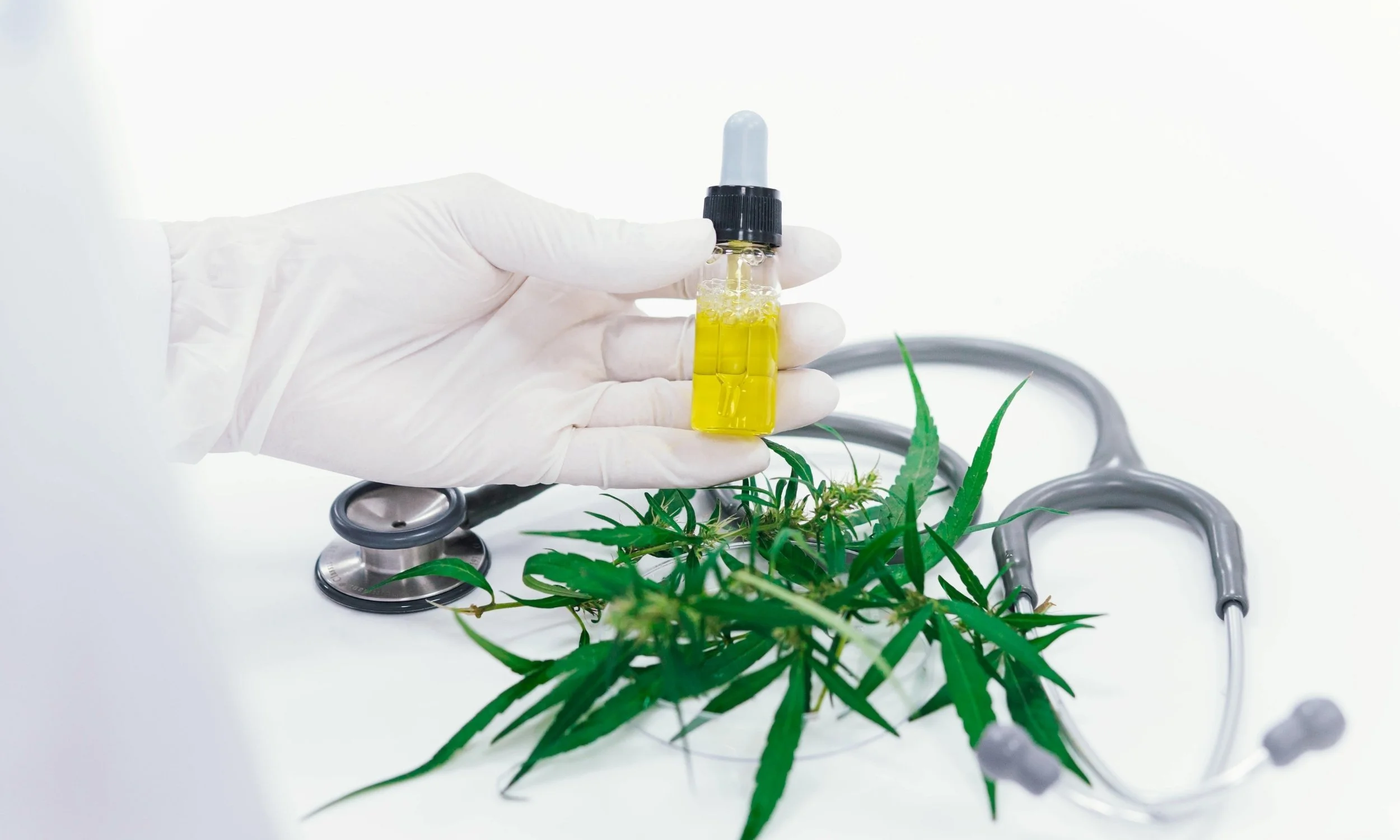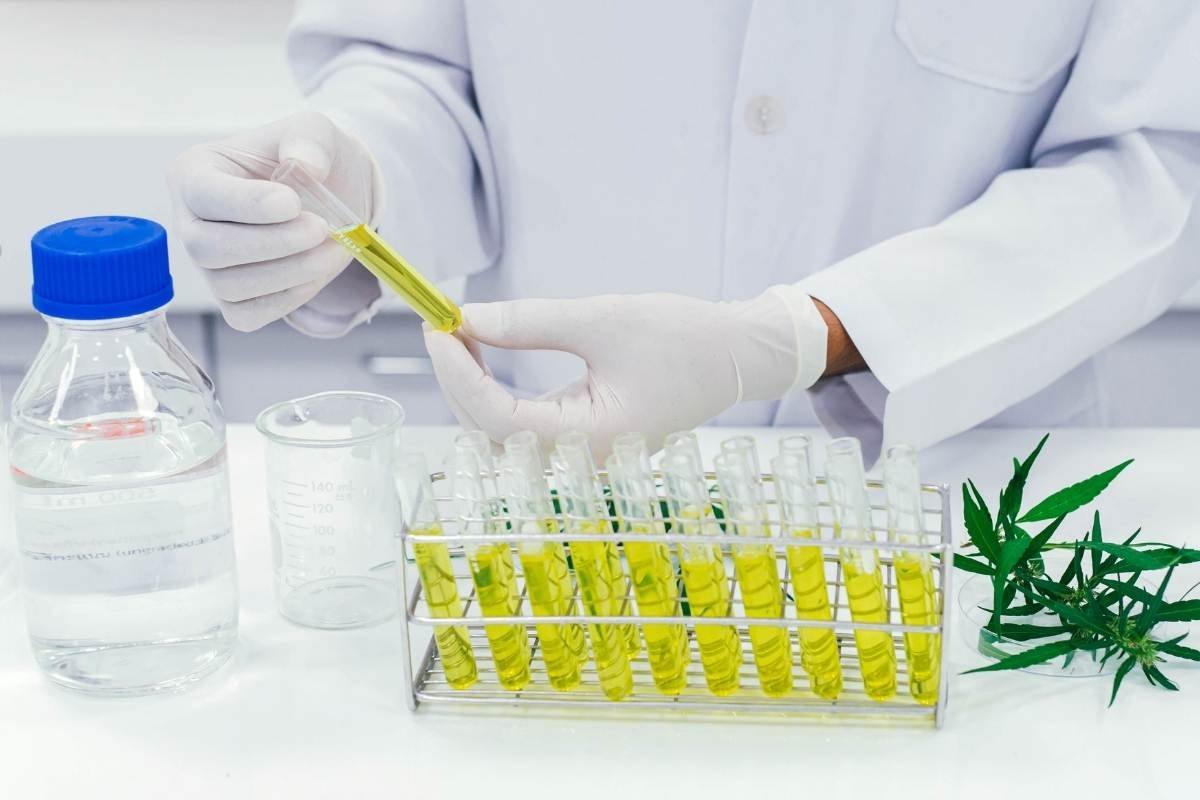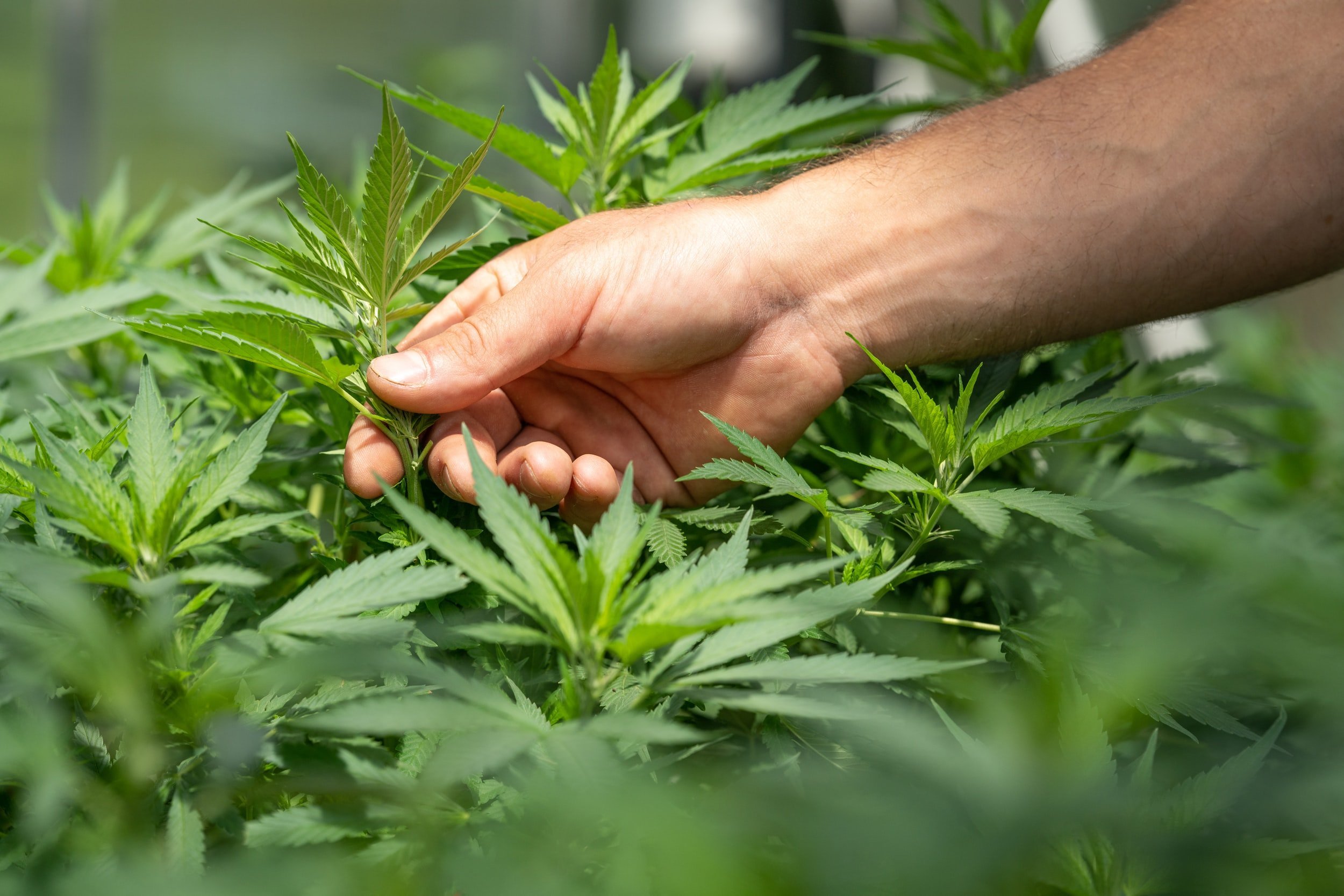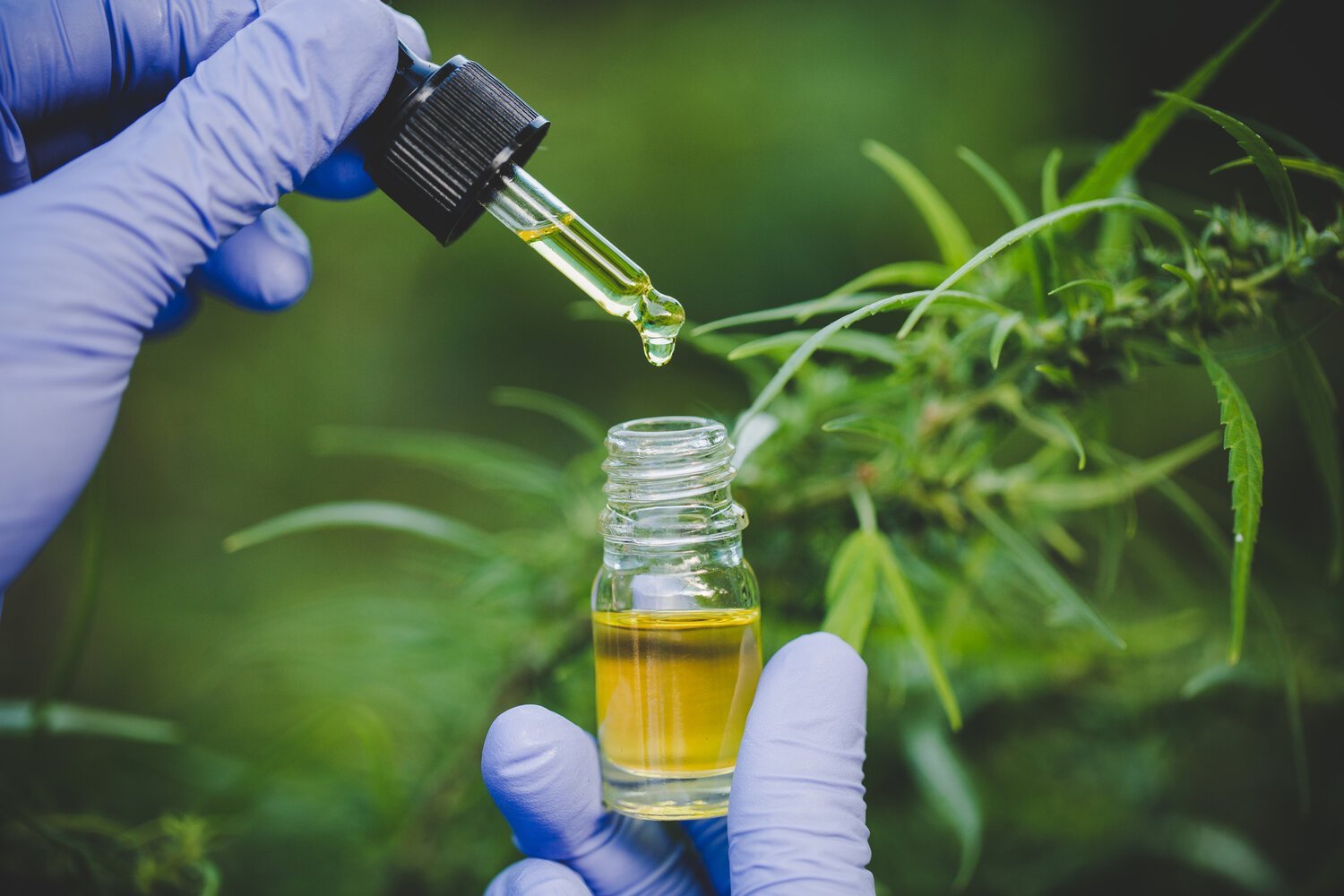
Cannabis and CBD Research
Current research points towards cannabinoids serving as a neuroprotectant, and clinical trials are looking at CBD alone and CBD+THC for concussions. Findings also indicate that CBD and THC may be effective for pain management, anxiety, and insomnia, all of which are common symptoms of concussions and persistent post-concussive symptoms.
Contents
Research indicates medical cannabis improves concussion symptoms
Research on CBD and/or THC as a protectant for the brain
Research on cannabis as a treatment for pain, including headaches and migraines
Research on cannabis as a treatment to reduce insomnia and anxiety
Please read our Cannabis Health & Safety page.
Cannabis: There are numerous contraindications to be aware of for cannabis (marijuana) because of its THC content. Cannabis can interact with other medications, especially blood thinners. Federal agencies advise against using cannabis while pregnant or nursing. Check your state guidelines and talk to a medical professional before using these products. People with brain injuries may be more vulnerable to substance abuse, including abuse of marijuana.
CBD: There is a consensus that CBD (cannabidiol) “has a good safety profile.” CBD products are made from hemp and contain no more than 0.3% tetrahydrocannabinol (THC).
Overview
Some research focuses specifically on CBD (cannabidiol) which is not nonpsychoactive, and other research focuses on cannabis (marijuana), with various ratios of CBD and THC (tetrahydrocannabinol).
CBD products are extracted from hemp plants and the finished product must contain less than 0.3% THC.
We use the term medical cannabis (or medical marijuana) because that is what is being used in research studies. The critical point is that where marijuana is legal, either as medical marijuana or recreational marijuana, the products are regulated, and you can purchase marijuana with specific ratios of CBD to THC.
Clinical trials: CBD for concussions
Researchers in the U.S., Canada, and Australia are investigating the efficacy of CBD (cannabidiol) for the acute stage of concussion (when the injury is new) and for persistent post-concussive symptoms.
As of February 2022, a research team in Canada will be studying the efficacy of CBD and THC for concussions; the NFL awarded the research team $500,000 for this study.
In the United States
The University of Miami
An ongoing study on cannabinoid treatment for concussion is being done by the University of Miami which received a $16 million grant for the research. The study is a five-year, three-stage study that will "assess the effectiveness of a new cannabinoid-based pill to treat concussion injuries. This partnership aims to propel this research and potential treatment forward by using two classes of drugs in a combination that scientists believe will reduce brain inflammation and the immune response."
As reported in UHealth in July 2018, the “findings of a pre-clinical pilot study were recently released, and they show that the combination therapy improved the cognitive functions of animals, compared with those treated with a single vehicle. In addition, there were no adverse effects from either the combination therapy or the individual components.”
The cannabinoid combination therapy is made up of CBD (cannabidiol) and Dexanabinol (HU-211) which is a synthetic cannabinoid that is an “anticonvulsant and neuroprotective, and is widely used in scientific research as well as currently being studied for applications such as treating head injury, stroke, or cancer.” The medicinal CBD for the study is sourced from BOL Pharma.
Phase 2 of the study is currently underway. The University of Miami is testing the cannabinoid-based pill on a small pilot study with people, including “a control group and two groups of TBI patients, acute and chronic.” More information can be found on our blog post, an interview with Dr. Hoffer. Dr. Hoffer had planned to transition to human clinical trials and file the treatment with the FDA in early 2021, but this was likely delayed by the Covid-19 pandemic.
Dr. Hoffer began a new study in February 2020 to research if “using a pill form of cannabidiol (CBD) and the psychedelic drug psilocybin effectively treats and possibly prevents symptoms of two conditions that commonly occur together: mild traumatic brain injury (mTBI) and posttraumatic stress disorder (PTSD)… Up to 40% of people impacted by mTBI [or TBI] also suffer from PTSD,” according to a University of Miami press release.
In Canada
The University of Regina (Saskatchewan Province, Canada)
In February 2022, the NFL awarded the University of Regina $500,000 to “try to optimize the formulation of cannabinoids such as tetrahydrocannabinol (THC) and cannabidiol (CBD) for pain management in those suffering from post-concussion syndrome and chronic pain, and for a neuroprotective treatment for concussions.”
The U of R study will be led by Patrick Neary, who “expects their CBD/THC formulation to show significant and positive changes to the brain that will reduce pain and use of prescription medications, such as opioids, and reduce concussions during athletic competition. It will be "really exciting" to see whether the formulation they're working on can reduce the incidence and/or the severity of concussions, he said.
Neary said when a person gets a concussion, there are chemical changes that are occurring in the brain to try and help it rehabilitate and recover from the trauma that it's gone through. With the disruption in the cells in the brain, there will often be an influx of more chemicals than are needed initially and that creates inflammation, he said.
‘We know that CBD is anti-inflammatory, so it can help to reduce the inflammation while still allowing the brain to recover from those good chemicals that are coming in,’ he said. ‘So that's the whole premise here. Can we use CBD? I believe we can.’"
The study will be in three phases:
Phase 1 will be “dedicated to figuring out the optimal formulation and amount of CBD athletes doing resistance training can take on a daily basis to treat inflammation.”
Phase 2 will “occur during football season, will have some players from the participating universities take the new optimal formulation and compare it against a placebo group to study its impacts.”
Phase 3 “will look at using a combination of CBD, tetrahydrocannabinol (THC) and nutritional supplements to reduce prescription pain medications, particularly opioids.”
NEEKA Health Canada
A new study led by NEEKA Health Canada will "test if CBD-based therapies can reduce the severity of post-concussion brain disorders in former NHL players." The National Hockey League Alumni Association and Canopy Growth Corp. (a cannabis and hemp company) are partnering with NEEKA for the clinical research; approximately 100 former players will be enrolled in the randomized, double-blind study. Researchers hope to finish the study by the end of 2020 according to an article in Green Entrepreneur.
In Australia
Impression Healthcare
The medical cannabis company Impression Healthcare began a new clinical trial in mid-2020 to access its new cannabinoid formula IHL-216A on “its ability to protect the brain against the main injury mechanisms which cause cell death and other negative consequences in the days and weeks following head trauma.” Impression will test IHL-216A with in-human and animal trials.
Up to 50 Australian MMA fighters who “receive head knocks and show symptoms of moderate to severe head concussions” will participate in the study. Participants will either receive IHL-216A or a placebo. The effectiveness of the CBD formula will be tested by participants’ baseline neurocognitive tests, which will be repeated throughout the study in both the experiment and placebo groups, and EEG and blood biomarker assessments. Impression Healthcare hopes to have IHL-216A fully approved for market by 2024.
Research indicates medical cannabis improves concussion symptoms
A study published in Brain Injury in October 2019 found that even though cannabis use didn’t affect concussion recovery time, cannabis use was associated with a lower symptom burden in the third and fourth weeks after injury. See our blog post, Study shows cannabis use decreases symptom severity after a concussion.
A December 2018 study in the journal Neurology indicates that medical cannabis (marijuana) helps concussion patients with concussion symptoms, especially pain, mood, sleep, and quality of life. The study also specifies the optimal forms of medical cannabis for the patients in the study, in terms of rations of CBD to THC, and methods of intake, such as a tincture (oral) or a vapor pen (inhaling). Read more in our blog post, Study finds medical marijuana improves concussion symptoms.
Research on CBD and/or THC as a protectant for the brain
A literature review published in July 2020 summarized that “the use of cannabinoids in TBI increases neurobehavioral function [and] working memory performance” through “down-regulation of pro-inflammatory markers, edema formation and blood–brain barrier permeability, preventing neuronal cell loss and up-regulating the levels of adherence junction proteins.” More information can be found in our blog post, Cannabinoids may be beneficial in treating TBI and multiple sclerosis.
A 2020 study published in the Journal of Psychopharmacology suggested that CBD increases cerebral blood flow (CBF) in the brain's memory processing regions. Reduced CBF is typically a characteristic of acute concussion. More details are in our blog post, Effects of acute cannabidiol linked to increased blood flow in regions involving memory processing.
In a 2017 study, "a team at the Hebrew University of Jerusalem has found that rats and mice subjected to traumatic brain injury (TBI) showed significantly better recovery when treated with cannabinoid compounds, possibly opening the way for clinical trials in the near future."
A 2018 report by the World Health Organization (WHO), in its Cannabidiol (CBD): Critical Review Report, discusses the neuroprotectant effects of CBD, “The range of conditions for which CBD has been assessed is diverse, consistent with its neuroprotective, antiepileptic, hypoxia-ischemia, anxiolytic, antipsychotic, analgesic, anti-inflammatory, anti-asthmatic, and antitumor properties.”
A February 2017 study, “Endocannabinoids: A Promising Impact for Traumatic Brain Injury”, by authors Lesley D. Schurman et al., was published in Frontiers in Pharmacology.
A 2014 study, Effect of Marijuana Use on Outcomes in Traumatic Brain Injury, reviewed the records of all trauma patients admitted to the surgical intensive care unit at Harbor-UCLA Medical center over a period of 2 years. All patients sustaining a traumatic brain injury and who had been given a urine test for drugs were selected for the study. After accounting for variables, "A positive THC screen is associated with decreased mortality in adult patients sustaining TBI." "The THC(+) group had a significantly lower mortality rate than the THC(-) group." The THC positive group had a 2.4% mortality rate compared to the THC negative group which had an 11.5% mortality rate.
In a 2012 study, researchers took newborn rats and restricted blood flow/oxygen levels to their brains, created a hypoxia-ischemia (HI) brain injury. They found that "CBD administration after (injury)..led to long-lasting neuroprotection." They found that dosing with CBD after the brain injury reduced the volume and extent of brain damage, reduced inflammation in the brain, and prevented the impairment of neurological behavior. The researchers observed that overall, rats given the HI brain injury had long-lasting functional impairments, but the rats that were given CBD after the injury had functional results similar to the group of control rats who were not given brain injuries.
Research on cannabis for treatment of pain, including headaches and migraines
A study published in September 2020 suggested that dried cannabis flower, which is the most widely used cannabis product in the U.S., can alleviate headache and migraine symptoms. 94% of participants reported symptom-relief within a two-hour observation window; “the average symptom intensity reduction was 3.3 points on a 0–10 scale.” See our blog post for more information: Cannabis flower may act as an effective pain reliever for migraines and headaches.
Dried Cannabis Flower
In a 2019 study published in Neurology, researchers found that 88.3% of patients with chronic migraines who were given medical cannabis reported a reduction in headache frequency, along with improvements in sleep, anxiety, and mood. Headaches are the most common symptom after a concussion, with the most common type of headache resembling a migraine, according to the American Migraine Foundation. Researchers Laszlo Mechtler et al. found that significantly more patients taking the 20:1 (THC to CBD) ratio reported headache reduction than those taking the 1:1 (THC to CBD) ratio.
A 2018 comprehensive literature review found that "there is accumulating evidence for various therapeutic benefits of cannabis/cannabinoids, especially in the treatment of migraine and headache."
A 2018 survey of oncology doctors regarding medical marijuana found that "sixty-seven percent viewed it as a helpful adjunct to standard pain management strategies". "In the new study, cancer doctors said their conversations about marijuana were almost always started by patients and their families, not by the doctors themselves. Overall, nearly eight in 10 cancer doctors reported having discussed marijuana with patients or their families, with 46 percent recommending it for pain and other cancer-related problems to at least one patient in the past year."
In 2016 researchers in the Johns Hopkins University School of Medicine (Baltimore, Maryland) began recruiting football players on the active roster in the NFL for a study of cannabis versus opioid consumption and "Evaluate how general health (e.g. mood, sleep, stress) relates to cannabinoid and opioid use." Players supporting the study are Derrick Morgan, Jake Plummer, and Eugene Monroe, who donated $80,000 toward the research. From the Player Research Invitation: "With emerging evidence about both the harms associated with opioid use and potential benefits of cannabinoids for pain and inflammation, some players have called for the NFL to re-evaluate its policy regarding cannabinoid use and the current practices surrounding opioid use. "
A 2014 study reviewed research since a 2004 "landmark" investigation that concluded that "cannabinoids can block spinal, peripheral and gastrointestinal mechanisms that promote pain in headache, fibromyalgia, irritable bowel syndrome and muscle spasm." The 2014 study is a review of ten years of subsequent research, confirming that "underlying endocannabinoid deficiencies indeed play a role in migraine, fibromyalgia, irritable bowel syndrome and a growing list of other medical conditions...Further research and especially, clinical trials will further demonstrate the usefulness of medical cannabis. As legal barriers fall and scientific bias fades this will become more apparent."
Research on cannabis as a treatment to reduce insomnia and anxiety
A literature review published in 2020 summarized, “the promise of CBD as an effective treatment for anxiety-related disorders is supported by some of the strongest evidence currently in the field of CBD-related research.”
Project CBD published the results of their 2019 survey about the use of CBD. Participants reported “significant improvements in pain and mood regardless of the underlying medical condition.” Most participants using CBD for a mood disorder reported that CBD was effective as an anti-depressant and anti-anxiety. Participants using CBD for sleep reported fewer problems with falling asleep and staying asleep.
A 2017 study states that cannabidiol (CBD) may potentially have benefits for treating insomnia for REM sleep disorder.
A 2016 Colorado-based study found that CBD oil "can be an effective compound to reduce anxiety and insomnia secondary to PTSD" in pediatric patients. The case-study patient was given 12 mg to 25 mg once daily, which "appears to provide relief of key symptoms with minimal side effects." "Her scores on the sleep scale and the anxiety scale consistently and steadily decreased during a period of 5 months...she was ultimately able to sleep through the night most nights in her own room, was less anxious at school and home, and displayed appropriate behaviors."
A 2013 study investigating CBD effects on sleep in rats, found that "CBD appears to increase total sleep time."
A 2007 study treated people with Sativex, a pharmacological medicine (a combination of CBD and THC, 15 mg of each) which has regulatory approval from 30 countries outside the United States, as of 2018. The researchers found "marked improvement in subjective sleep parameters in patients with a wide variety of pain conditions including multiple sclerosis, peripheral neuropathic pain, intractable cancer pain, and rheumatoid arthritis" with no need for dosage increases over time. The researchers note that lack of good sleep quality is a "key source of disability in chronic pain syndromes."
More resources for information on CBD and cannabis
We’ve several times quoted articles from PROJECT CBD, which is a highly respected resource. Project CBD is a “California-based nonprofit dedicated to promoting and publicizing research into the medical uses of cannabidiol (CBD).”

























